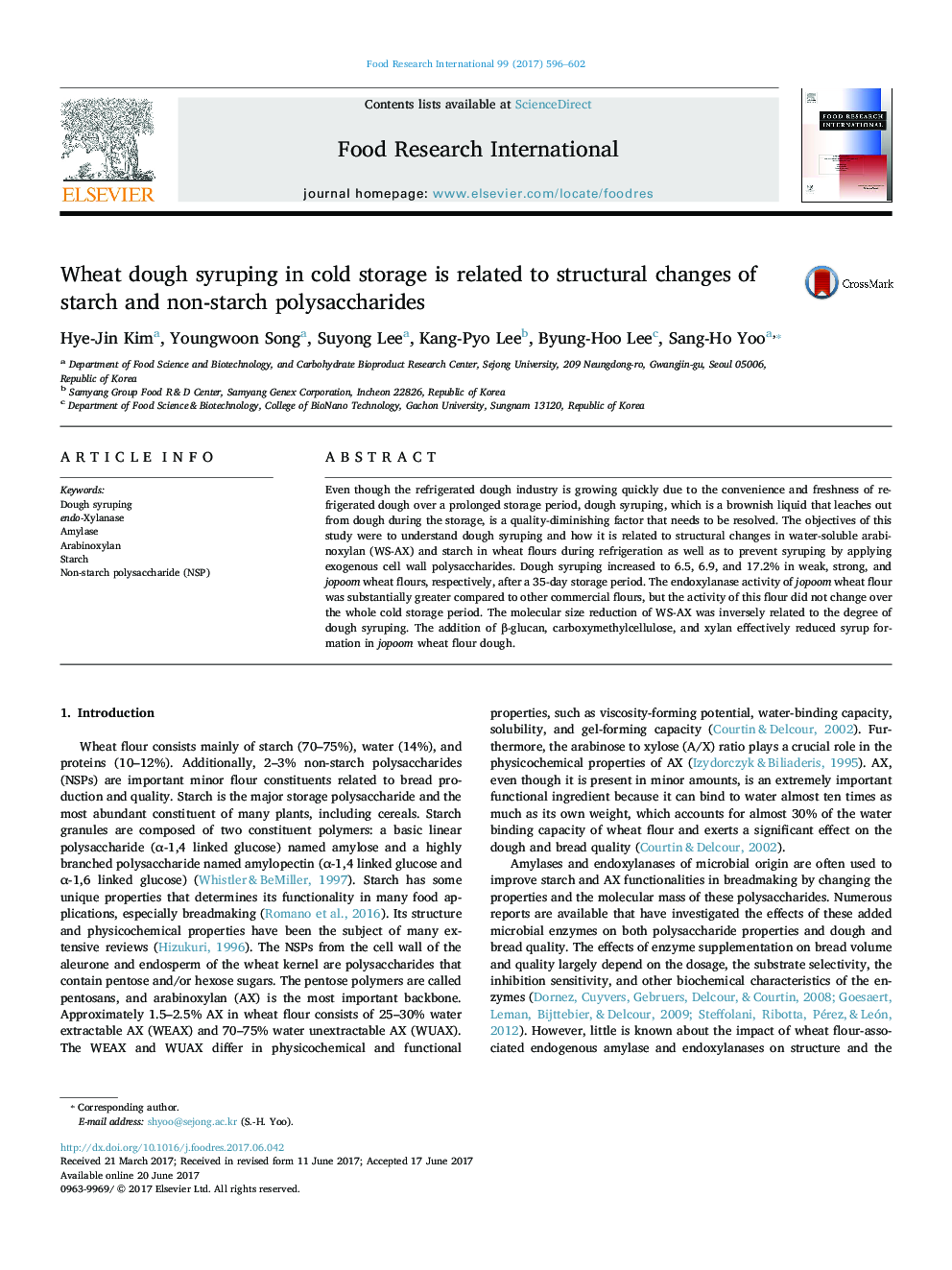| Article ID | Journal | Published Year | Pages | File Type |
|---|---|---|---|---|
| 5768135 | Food Research International | 2017 | 7 Pages |
â¢Dough syruping of jopoom flour dough was more severe than other commercial ones.â¢Endo-xylanase activity of jopoom dough significantly greater than other doughs.â¢Endo-xylanase and amylase activities did not change in refrigerated wheat doughs.â¢Structural disintegration of WS-AX negatively influenced on syrup formation.â¢Exogenous NSPs decreased significantly dough syruping during refrigerated storage.
Even though the refrigerated dough industry is growing quickly due to the convenience and freshness of refrigerated dough over a prolonged storage period, dough syruping, which is a brownish liquid that leaches out from dough during the storage, is a quality-diminishing factor that needs to be resolved. The objectives of this study were to understand dough syruping and how it is related to structural changes in water-soluble arabinoxylan (WS-AX) and starch in wheat flours during refrigeration as well as to prevent syruping by applying exogenous cell wall polysaccharides. Dough syruping increased to 6.5, 6.9, and 17.2% in weak, strong, and jopoom wheat flours, respectively, after a 35-day storage period. The endoxylanase activity of jopoom wheat flour was substantially greater compared to other commercial flours, but the activity of this flour did not change over the whole cold storage period. The molecular size reduction of WS-AX was inversely related to the degree of dough syruping. The addition of β-glucan, carboxymethylcellulose, and xylan effectively reduced syrup formation in jopoom wheat flour dough.
Graphical abstractDownload high-res image (177KB)Download full-size image
